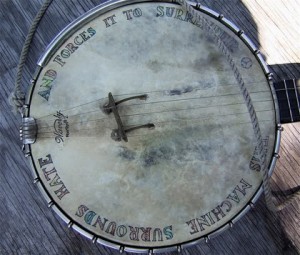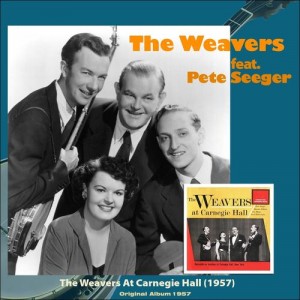
This year is the 80th anniversary of the beginning of the Spanish Civil War, a conflict remembered in mythic terms by many on the Left. Called the “Good Fight”, it was the opportunity that the West failed to take to defeat Fascism in its tracks, leading to the vicious Second World War.
One element of the war remembered fondly by both members of the International Brigades and their comrades is the music. During this period, artists like Paul Robeson, Pete Seeger, Ernst Busch, and others recorded and performed songs in solidarity with the Second Republic. I recently had the opportunity to interview Dr. Peter Glazer. He is a Professor of the University of California Berkley and has done a great deal of scholarship on this topic. His father performed on the original recordings featuring Pete Seeger and the Almanac Singers created by Moses Asch and he has written a musical using these songs titled Heart of Spain and the book Radical Nostalgia: Spanish Civil War Commemoration in America.
There are two points worthy of discussion. First, one can find in these songs a type of radical lineage that has continued throughout the generations. These recordings were some of Pete Seeger’s earlier recordings and this chapter was particularly targeted by the McCarthyite witch hunts during the Cold War as an instance of subversion. The next generation, beginning with first the Beats and then Bob Dylan, embraced this heritage of radical politics in art. This continued on through the rise of punk rock and rap/hip-hop music. When one listens to Tupac Shakur, Biggie Smalls, or Jedi Mind Tricks, in the background can be heard strains of Paul Robeson’s Die Moorsoldaten (The Peat Bog Soldiers). In between the lines of the lyrics of The Clash, it is possible to discern the socialist thrust of Pete Seeger singing Viva La Quince Brigada. This is a vital part of Left wing history and culture worthy of embrace.
Second, Dr. Glazer’s notion of “radical nostalgia” is one to be valued. Nostalgia today is being utilized to invoke reactionary notions. Yet there is a progressive thrust to nostalgia about the Spanish Civil War. This can be extended further in the timeline and utilized to counter the reaction. The late Howard Zinn understood this with his People’s History project, creating an honorable lineage that remembered the Left regardless of ideological constraint. When people talk about the “good old days” of the 1950’s, instead of replying with a negative about how it was the final decade of Jim Crow segregation, we should instead speak with pride about how a generation of men and women stood up against the onslaught of McCarthyism and refused to repudiate their anti-racist ideals despite the cowardice of a select few informers that named names. We must reclaim the past for the Left and honor it despite whatever flaws there may have been in the Communist movement. Only then will be be able to forge a brighter future.
This year will see a series of commemorative events throughout the country. The Berkley campus in particular will see events including an October staging of Dr. Glazer’s play Heart of Spain. For more information about events in Berkley, visit Dr. Glazer’s department website. The other source of information remains the always-helpful website of the Abraham Lincoln Brigade Archives.
This program is approximately one hour and is available for download in a variety of formats at https://archive.org/details/SongsOfTheSpanishCivilWar. It is available for free and all permissions are granted to non-profit and educational organizations to use and broadcast.
]]> The great Pete Seeger recently passed away. For a few days following his death I listened to just about everything he sang that was available. He was by no means a perfect human being. Many have pointed to his controversial support of the Soviet Union during Stalin’s Regime. He later recognized this as a mistake. A complex and courageous individual, he was never afraid to voice an opinion or stick up for the underdog. Seeger’s rendition of the Garden Song has always been a favorite. The words ‘Inch by Inch, Row by Row’ reflect the feelings I have about how we educate and care for our nation’s children. From time to time there are those who wish to skip a few steps in the process. That is a shame when considering something so important.
The great Pete Seeger recently passed away. For a few days following his death I listened to just about everything he sang that was available. He was by no means a perfect human being. Many have pointed to his controversial support of the Soviet Union during Stalin’s Regime. He later recognized this as a mistake. A complex and courageous individual, he was never afraid to voice an opinion or stick up for the underdog. Seeger’s rendition of the Garden Song has always been a favorite. The words ‘Inch by Inch, Row by Row’ reflect the feelings I have about how we educate and care for our nation’s children. From time to time there are those who wish to skip a few steps in the process. That is a shame when considering something so important.
For many years now I have been expressing some concerns about how we enculturate and educate young people. The most salient of these concerns being an over emphasis on technology, a proliferation of prescription medications and the scripted, standardized test based education that is offered young people at present. These opinions, while mine, might also be backed up by many in the counseling and education fields. Despite such view points many folks continue to advocate for the very Kool-Aid that is hurting our kids. Why? Some think that individuals like me are way off base and that problems are to a large extent fabricated. Others dismiss warning signs due to politics, power and perpetual motion. Whatever the reason, kids are the ones who are impacted most. What is that about children being our future?
In some ways we have created a cottage industry for testing companies, the Pharmaceutical Industry, some Educational Theorists and a number of business leaders. All of this has led us to view kids as receptacles waiting to be filled with data. The pace of the world has significantly changed over the last 15-20 years. During this time, kids have become plugged in to technology so much that they have little time to interact with each other. During this time, play has become organized, education standardized and anxiety, depression, ADHD along with a sense of alienation, have become common concerns. Don’t believe me – just ask a School Nurse, Social Worker or Guidance Counselor. Most teachers would concur as well. Many remain quiet for fear of retribution from those higher up. It is not Rocket Science. In fact, it is really about stuff like money, reputation, politics, power and perpetual motion. It is also about the wrong people driving educational policy.
Fixing matters is actually quite simple. Bring back things like recess and study halls to start. We should also advocate that mom and dad encourage their children to get unplugged and go outside to play. Then let us follow up by having districts drop out of the Standardized Testing as a graduation requirement, along with Common Core and we are showing some progress. These few modifications would create opportunities for kids to interact, as well as for schools to emphasize a broader spectrum of courses.
Another modification I would encourage would have to be in the area of technology. We need to slow down a bit. I realize that espousing such a belief is heresy these days. It goes without saying that technology has a prominent place in today’s world. In the future it appears that it will hold an even greater place. While the advantages are obvious the shortcomings are as well (or should be).
This is not a call for the elimination of technology. That would be absurd. This is more a call to infuse social skills dynamics into our curricula in order to enhance the use of technology. Unfortunately there are those who consider such views as technophobic. Caution, promoting mental health and seeking to advance social interactions represents the thinking of dinosaurs to them. More Kool-Aid please!
The technology schools purchase today is antiquated almost immediately. Because of this, requests for the ‘newest’ equipment will appear on school committee’s budgets frequently. Without question technology can advance education in extremely positive ways. I applaud our schools for constantly seeking to challenge and support young people. Technology can play a role. Keeping up will be a challenge. It will eventually force school officials to choose between technology and other services. All of this at a time when kids need support and human contact more than ever. Seeking a balance is going to be tricky. Not finding a balance will help to maintain a cycle where kids spend less and less time developing social skills.
Parents can help here as well. All too often, kids spend hours staring at computer screens. All too often, kids are plugged in to some device. Again, technology can do great things. So can a walk, discussion with friends and a family vacation.
I know that none of this is going to happen anytime soon. As a matter of fact, our present course is headed in the opposite direction. The messages the general population get, regarding the country’s youth, centers upon our being behind many other nations (especially in education). This causes panic for some. It represents opportunity for others. While our education system certainly has issues, it also exhibits significant strengths. What are they, you ask?
Folks come from all over the world to US Schools. Why’s that? Our Colleges and Universities are pretty good. Folks leave their homes to come to this country for a reason as well. Again, we have problems–lots of them. We have prejudice, poverty and way too much violence. Sometimes we stick our noses in other people’s business and far too often the country’s political system gets bogged down. Still, people come here in droves. That is because we have a system that can change and evolve. That is because there is flexibility here. There also are multiple possibilities. Kids who struggle with school can still catch up with GEDs, junior college, technical schools, job trainings and later on, 4 year schools, if they choose. That is of course, if they can survive High School. That does not occur everywhere. Kids in this country can get back into the game (in most instances).
What is happening now is a step backwards for young people. We have created a herd mentality that often denies diplomas, promotes stress and encourages conformity. In many ways we have reverted back to a mentality that views kids as mini adults. Maybe it is not quite Oliver Twist, but ‘reviewing the situation’ might find us wanting in terms of understanding child development. In fact, our culture spends more incarcerating people than educating them.
Today, business leaders influence the Educational Powers to enact subject matter that produces workers, rather than capable thinkers and citizens. We have also created a system where kids from poor neighborhoods, those with special needs and many English Language Learners are negatively impacted due to educational policies. Worse still, the education folk have let this happen. Welcome to the K-12 Matrix.
My final modification (in terms of this article) concerns recognizing the uniqueness of childhood and adolescence. While it is imperative that children be taught skills, discipline, socialization and responsibility, they should also be encouraged to explore, have fun and use their imaginations. In recent times much of this ‘stuff’ has been curtailed. The end result is the perfunctory form of learning we have today. That might be great for test scores and getting accepted to college, but for critical thinking, social skills and long-term relationships, it is a disaster. Did you ever think that we would have to teach people how to sleep, concentrate and be mindful? We are so busy multitasking that few of us are in the moment.
Don’t you think we should try to find time in our curriculums for moments of meaning? Don’t you think we should help kids discover life’s ‘whys’ along with the ‘hows’? The schools cannot be asked to carry these burdens alone. Parents are essential. The community plays an important role as well. When adults tell young people that they matter good things often happen. This needs to be infused into our messages far more often. Choosing to matter should be an everyday theme so that making kids matter comes into fruition.
I am confidant things can change. No need to give up on technology and accountability. What needs to occur is balance. What also needs to occur is for us to check our priorities (and who our influences are). Somehow we have come to believe that preparing kids for work is more important than for life (including possible career options). If only Charles Dickens were around today. He would recognize the exploitation that comes in modern form. Rest well Pete Seeger. When will we ever learn?
]]> Pete Seeger did have a hammer.
Pete Seeger did have a hammer.
It was a five string banjo that had this message on it: “This machine surrounds hate and forces it to surrender.”
And with that machine he spent his entire life hammering out danger, a warning and the love between his brothers and my sisters all over this land.
And he hammered out these values right here in Rhode Island.

Pete Seeger, who died yesterday in New York at age 94, is the world’s best-known pure folk performer and was an undisputed leader of the movement for social change in the 1960’s and beyond. According to his New York Times obituary: “His agenda paralleled the concerns of the American left: He sang for the labor movement in the 1940s and 1950s, for civil rights marches and anti-Vietnam War rallies in the 1960s, and for environmental and antiwar causes in the 1970s and beyond.”
 Pete Seeger, wrote Rolling Stone, never had a top 40 hit, but he wrote some of the most popular protest songs of the sixties like “If I Had a Hammer,” “Where Have All The Flowers Gone” and he’s the first (not the Byrds) to put the book of Ecclesiastes to music with “Turn, Turn, Turn.” He is literally the link between Bob Dylan and Woody Guthrie.
Pete Seeger, wrote Rolling Stone, never had a top 40 hit, but he wrote some of the most popular protest songs of the sixties like “If I Had a Hammer,” “Where Have All The Flowers Gone” and he’s the first (not the Byrds) to put the book of Ecclesiastes to music with “Turn, Turn, Turn.” He is literally the link between Bob Dylan and Woody Guthrie.
But perhaps he’s best known for playing folk music in Newport, Rhode Island. In 1959, The Newport Folk Festival was spun off from the Newport Jazz Festival and Seeger was on the Board of Directors of the new all-folk (but not for long!) show.
The Newport Folk Festival has a great ongoing tribute to Seeger this morning on their twitter feed this morning, including this: “can’t sum him up in a headline: Folksinger Troubadour Activist. Instead we prefer Pete Seeger, amazing human being, died today. aged 94.”
Here he is playing with the Newport Folk Festival Allstars in 1959:
My step-dad, Don Wilkinson, was a Weavers fan back then and didn’t miss a Folk Festival until he went to Vietnam. I called him this morning to offer my condolences and he bent my ear a little about the earliest days of the Newport Folk Festival.
“I was in high school, I was looking for girls,” he told me. “It was the thing to do in Rhode Island. They literally shut down Aquidneck Island at 2 in the afternoon. I bought a Vespa because you couldn’t get a car over on the ferry.”
About Pete Seeger in particular he said, “You’ve got to remember, they all sang together back then.” But he said Seeger’s story telling left an impression. “He would play Eerie Canal, but he would have a five minute introduction … why they wrote it and why they sang it they did. He probably talked just as much as he sang.”
 In 1961, he saw Seeger at Edwards Auditorium as a freshman at URI (the same place I would see the Samples my first year at URI a generation later!)
In 1961, he saw Seeger at Edwards Auditorium as a freshman at URI (the same place I would see the Samples my first year at URI a generation later!)
“He was fantastic. It wasn’t even sold out,” Wilkinson told me this morning. “I went away wanting to play all of his songs.”
Willkinson remembered almost every detail about that Pete Seeger show at Edwards. “He was dressed like he was a farmer, he wore a plaid shirt.” This was, my stepdad tried to explain to me once again, a radical statement in and of itself in 1961. “He had a whole bunch of instruments behind him – two or three banjos, a couple guitars. It was just a one-man show. He played all those old Weaver songs.”
Truth is, I’ve been hearing tales about Rhode Island Pete Seeger performances from this particular source for as long as we’ve known each other (1988). “He’s in everyone’s life now,” my step-dad said when I asked him if he was sad to see Seeger go. “He will always live on through his music.”
 But Pete Seeger also leaves Rhode Island an even more tangible legacy. His daughter, Micah Seeger, is an artist in Tiverton, where she paints and works with clay. And Micah’s son Tao Rodriguez-
But Pete Seeger also leaves Rhode Island an even more tangible legacy. His daughter, Micah Seeger, is an artist in Tiverton, where she paints and works with clay. And Micah’s son Tao Rodriguez-
“Pete Seeger was the first musician I saw in concert. I was all of twelve: my dad took me on a Monday night, all the way from New Jersey to Queens. Years later I heard Pete Seeger sing from the porch of a house in Little Compton, Rhode Island.”
Mika Seeger and her husband Joe Bossom turned their farm into the now famous Sandywoods development – arguably the most sustainable and progressive residential real estate project in Rhode Island history.
 There is still a working farm there, but now there is also a clustered, 50-unit development of mixed-use and live/work apartments and single-family dwellings. There is an art gallery, a commercial component, affordable housing and a thriving Saturday night live music performance. Mika still live in the old farm house. Sandywoods is essentially people of all incomes living and working together, and creating art and playing music and working the land together – and it was started by a Seeger.
There is still a working farm there, but now there is also a clustered, 50-unit development of mixed-use and live/work apartments and single-family dwellings. There is an art gallery, a commercial component, affordable housing and a thriving Saturday night live music performance. Mika still live in the old farm house. Sandywoods is essentially people of all incomes living and working together, and creating art and playing music and working the land together – and it was started by a Seeger.
There will be a memorial concert at Sandywoods for Pete Seeger on Feb. 14.
Pete Seeger’s music lives on for the entire world, passed on from folks like Don Wilkinson to me. And his dream of a more utopian society is being realized at Sandywoods in Tiverton. Maybe, just maybe, by wondering aloud where all the flowers had gone he helped bring them back.
]]>